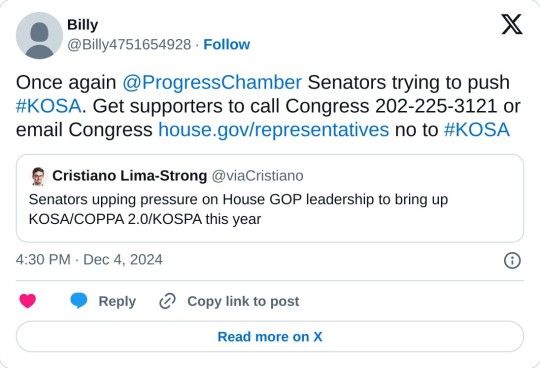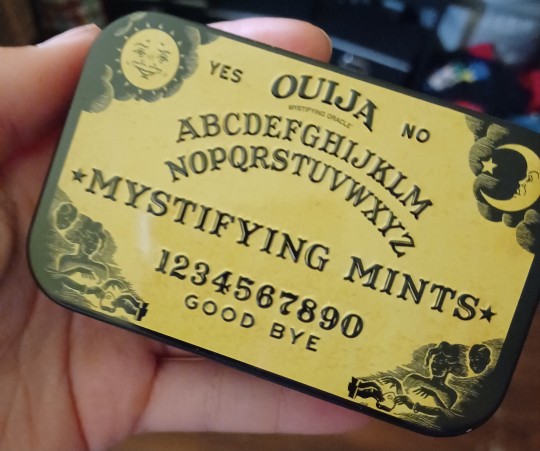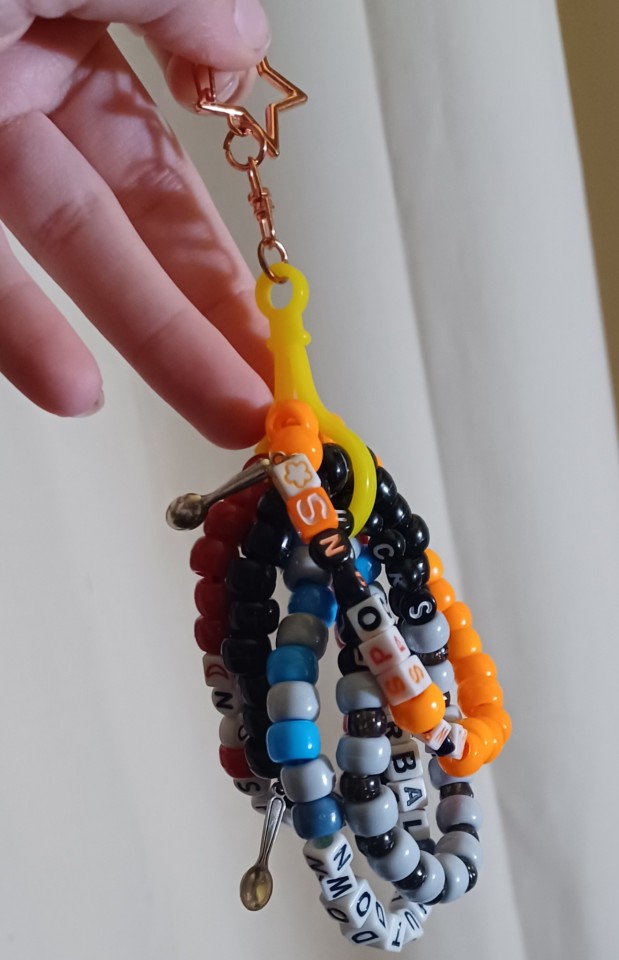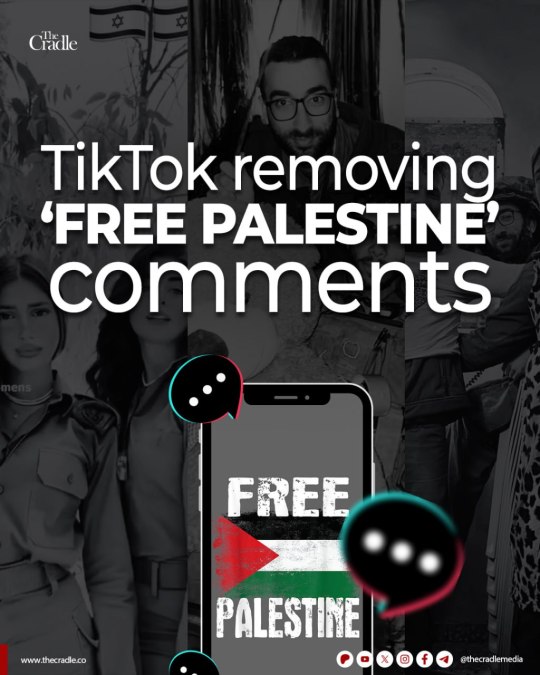#tiktok is a tool and is a useful as the user wants it to be
Explore tagged Tumblr posts
Text
Follow Darienne Nez on xiaohongshu for more 🫶🏻
#I’m genuinely so verkelempt rn#navajo nation#navajo tribe#the great tiktok migration of 2025#the great xiaohongshu migration of 2025#tiktok#tiktok ban#i loved indigenoustok im so glad many are moving to xhs!!!#like as much as tiktok is dance trends it is also cultural education!#it has connected and bridged divides between communities that many of us never thought could coexist#if you’re gonna name tiktoks failures name its virtues too because there are many#the outpouring of love from Chinese users who see indigenous tribes posting and see family…How are you not bawling#something is healing here#tiktok is a tool and is a useful as the user wants it to be#if you want brainrot enjoy your brainrot (as everyone seems allowed to do on tumblr and reddit and insta)#but if you want content that expands your worldview it’s right at your fingertips
6 notes
·
View notes
Text
I don't know I'm not done talking about it. It's insane that I can't just uninstall Edge or Copilot. That websites require my phone number to sign up. That people share their contacts to find their friends on social media.
I wouldn't use an adblocker if ads were just banners on the side funding a website I enjoy using and want to support. Ads pop up invasively and fill my whole screen, I misclick and get warped away to another page just for trying to read an article or get a recipe.
Every app shouldn't be like every other app. Instagram didn't need reels and a shop. TikTok doesn't need a store. Instagram doesn't need to be connected to Facebook. I don't want my apps to do everything, I want a hub for a specific thing, and I'll go to that place accordingly.
I love discord, but so much information gets lost to it. I don't want to join to view things. I want to lurk on forums. I want to be a user who can log in and join a conversation by replying to a thread, even if that conversation was two days ago. I know discord has threads, it's not the same. I don't want to have to verify my account with a phone number. I understand safety and digital concerns, but I'm concerned about information like that with leaks everywhere, even with password managers.
I shouldn't have to pay subscriptions to use services and get locked out of old versions. My old disk copy of photoshop should work. I should want to upgrade eventually because I like photoshop and supporting the business. Adobe is a whole other can of worms here.
Streaming is so splintered across everything. Shows release so fast. Things don't get physical releases. I can't stream a movie I own digitally to friends because the share-screen blocks it, even though I own two digital copies, even though I own a physical copy.
I have an iPod, and I had to install a third party OS to easily put my music on it without having to tangle with iTunes. Spotify bricked hardware I purchased because they were unwillingly to upkeep it. They don't pay their artists. iTunes isn't even iTunes anymore and Apple struggles to upkeep it.
My TV shows me ads on the home screen. My dad lost access to eBook he purchased because they were digital and got revoked by the company distributing them. Hitman 1-3 only runs online most of the time. Flash died and is staying alive because people love it and made efforts to keep it up.
I have to click "not now" and can't click "no". I don't just get emails, they want to text me to purchase things online too. My windows start search bar searches online, not just my computer. Everything is blindly called an app now. Everything wants me to upload to the cloud. These are good tools! But why am I forced to use them! Why am I not allowed to own or control them?
No more!!!!! I love my iPod with so much storage and FLAC files. I love having all my fics on my harddrive. I love having USBs and backups. I love running scripts to gut suck stuff out of my Windows computer I don't want that spies on me. I love having forums. I love sending letters. I love neocities and webpages and webrings. I will not be scanning QR codes. Please hand me a physical menu. If I didn't need a smartphone for work I'd get a "dumb" phone so fast. I want things to have buttons. I want to use a mouse. I want replaceable batteries. I want the right to repair. I grew up online and I won't forget how it was!
72K notes
·
View notes
Text
i really do think there’s a huge disconnect on here w/ people who have never used tiktok as to what it actually is and who actually uses it. the number of people i’ve seen call it a “teen dancing app” is actually insane. it has not been a teen dancing app since i was in high school, around 2016 - 2020. the main communities i saw on a daily basis were 1) black history/anti-racism educators, 2) high school & college teachers sharing in-classroom strategies and frustrations with the education system, 3) local/state political leaders giving real-time updates on behind-the-scenes government decisions, & 4) community activism & leadership. like tiktok is an adult platform. almost every person i interacted with was my age or older. and yes it completely depends on your fyp and how you interact with the app, yes there’s still teenagers and dance videos and literally anything else you can think of. but these communities of adults aren’t insubstantial at all, they have literally millions of interactions on a daily basis. there’s about a million other types of communities that i could name just off the top of my head, because the range of users was SO diverse and thriving. it’s a long-distance community tool, just like any other social media—and honestly much better than any other social media, because it relies primarily on the kindness of strangers. i saw at least 5-10 videos today of queer people in rural areas panicking because they don’t have any access to queer community on any other platform or in real life. and before i end this i do want to say i think tiktok is coming back, i think this is a highly orchestrated political move, etc., but i do know it won’t ever be exactly the same. people are panicking about free speech violations because tiktok was a place where people fucking SPEAK. i have never seen mass mobilization and communication in this same way for as long as i’ve been alive. it is the people’s app, not just a silly teenage thing. if you’re not on tiktok and never have been, please stop talking about it like you know anything at all😭
#idec if i look stupid for these posts i am fucking Mad#it’s not about doomscrolling. be so fr. i’ve had a time limit on for years and i’ve done perfectly fine#people’s jobs were on this app. small businesses were on this app. fucking CULTURE was on this app#project willow? bisan in gaza? like this is the most interconnected and fast-moving source of news we have#literally straight from the ground. from the places where it’s happening#i know i can still read news. that’s not the problem.#the problem is that i have nowhere else to see the videos from my minnesota legislator who’s been giving daily updates on the republican#coup in the house of representatives. like. do you see the problem.#not to mention half the news sites are paywalled anyway.#and i saw someone say that this forces us to foster irl community which is true again. but you can still have irl community at the same time#as long-distance virtual community????#my best friends are long distance. if all social media went dark i could never talk to them again.#like we are in the fucking 21st century. we should be able to have both.#anyway. sorry for all the ranting lately except i’m really not because i am fucking PISSED#i’ll be on rednote and youtube for a while except neither of them are really the same.#genuinely nothing was like tiktok fr. i miss it already#tiktok#tiktok ban
634 notes
·
View notes
Text
🚨🚨🚨RED ALERT🚨🚨🚨
if you care about trans folks please take a few minutes to read through this post and share.
They are not even trying to hide their true intentions with KOSA...

"Top of the agenda is to go after providers of gender affirming care, including for adults. The FTC could also go after online platforms for displaying LGBTQ content which would be supercharged under KOSA."
This is catastrophically bad.
There is a HUGE push to pass KOSA rn at the end of the year.
Real quick summary: Blumenthal and Blackburn "rewrote" KOSA to appeal to the right more. They worked with ELON MUSK 🤦♀️🤦♂️ to push this bill "protecting kids". Tomorrow, many orgs are bringing groups of parents to speak to congress. This is coming at a time when FTC commissioner admitted their agenda is straight transphobia:
There are two ways KOSA can be passed right now. Either from the House or attaching it to an end of year spending bill. They will try both.
Republican leadership (Scalise and Johnson) are surprisingly what is stopping thia from going through. They wont admit it out loud but they dont like the bill.
WE NEED TO PUSH BACK NOW!! Tomorrow those phones need to be ringing OFF THE HOOK while they meet with parents.
PLEASE SPREAD THIS EVERYWHERE!! ADD THESE LINKS TO TWITTER, REDDIT, INSTA, TIKTOK!!
USE THESE CALLING TOOLS AND SCRIPTS TODAY AND TOMORROW ALL DAY!!!

SCRIPTS:
🔴 If your rep is GOP:
"I am urging you to VOTE NO on KOSA, the Kid’s Online Safety Act. This is a dangerous bill that will harm children.
Many news organizations have reported that this bill actively harms kids by exposing their private data to strangers under the guise of protecting them.
We need to hold Big Tech accountable, but KOSA is not the solution.
The bill let any state attorney general and the FTC to sue any website for “harmful” content. Do we really want blue state lawyers deciding what can and can’t be allowed online?
Big Tech is already censoring us. That’s why they support KOSA. This is massive government overreach. We need a bill that actually protects children by creating better security measures instead of bringing about more censorship.
Multiple experts agree this bill pushes age verification, even with the new language.
KOSA hands more private data of children to third party companies, which would put them in further danger. How is this protecting children’s privacy?
What parent would want their child’s private data in the hands of strangers like this? KOSA is actively putting kids in danger.
Do NOT support this bill. Thank you."
Also,to note, Biden supports KOSA: You could try asking your GOP rep why they would support a bill that has Biden's support,and that he could use it to his advantage somehow (we know GOP does not like Biden,so it should be utilized somehow). We need to ensure the bill doesnt pass at all.
🔵 if your rep is DEM:
"I am urging you to VOTE NO on KOSA. Nearly 200 human rights and LGBT organizations total came out in an open letter opposing it. The ACLU is against it. Hundreds of thousands of Gen Z, who actually live online, are against it.
We know the harms of social media, and we know this is not the solution. The new language does NOT meet any concerns brought up, in fact many organizations were ignored.
Major news have reported that this bill actively harms kids. We do not want this. The rewritten bill would still allow any state attorney general, and now the FTC, to sue any website for “harmful” content. When you have Republicans calling anything LGBT “sexual exploitation” or anything about race “CRT” to successfully ban books and teachers, then they will use any justification to censor the internet.
The Missouri attorney general used “mental health” successfully to ban gender-affirming care with backed up research. Suicide rates will skyrocket for marginalized youth with this bill restricting content. Multiple experts agree this bill pushes age verification, even with the new language.
KOSA hands more private data of children to third party companies. Furthermore, updated language threatens encryption the same way the Earn It Act does.
How is this protecting children’s privacy? KOSA actively harms kids. Do NOT support this bill. Thank you."
Tell them you'll vote for your reps if they vote no on KOSA, anything goes. But most importantly it's crucial that KOSA is not being brought at all for any vote.
Thank you, remember to stay calm and stay strong. We've got this!! ♡
#kosa#stop kosa#kosa bill#fuck kosa#cats of tumblr#dan and phil#brian thompson#lana del rey#art#aesthetic#vocaloid#kaito#kaito shion#luka megurine#supernatural#catgirl
451 notes
·
View notes
Text
Tips for all of my alternative & Chronically ill/ disabled friends!
A big thing that's helped me feel more comfortable accommodating my disability is finding accessibility tools that reflect my personality / interests.
I should put a disclaimer that making disability "aesthetic" should not be the most important thing about your health! I do this where I can to help me accept my disability.
Here are some alt accessibility tools I've found / made & utilized for myself!
1. If you're prone to nausea:
Anti-nausea meds work, but I also find that peppermints work well, too! I always have mints on me. At home, I've stored them in this coffin container!

I do keep a few of these mints in my bag, as well as ginger hard candies (they taste very strong, but are VERY efficient). I got the peppermints at Dollar tree, and they've genuinely been a life saver. (Peppermint is a natural stomach relaxer /info)
Alternatively, I've found this adorable ouija board tiny mints container that has mints in it!


2. If you struggle with temperature-regulation:
The mints are even fun-shaped! I also saw other horror-movie themed mint containers in-store as well. Since they're tiny, they dont work well for severe nausea, but they are still helpful!
(*The ones pictured are not the altoids brand. Altoids are way stronger than these ones and work way better.)
For me, my hands and feet are always FREEZING, but my core will be super warm. What has helped me a lot has been gloves and fuzzy socks!

3. Do you have noise-canceling headphones? Decorate them!
I have a lot of spooky gloves like this, but I prefer the fingerless ones because I can still use my phone and be warm at the same time! I've also heard my friends who are wheelchair users say gloves can help protect your hands if you use a manual wheelchair. Another added bonus is that certain gloves can help limit mobility for those of you who struggle with hypermobility in your hands.
I decorated my N/C headphones in shark stickers because sharks are my special interest!

These are Soundcore Life Q30's. I have gotten compliments on the stickers many times! You could put halloween stickers on yours or decorate your headphones in other ways! I've seen people crochet horns onto the headband portion of their headphones.
4. I would recommend any chronically ill person carry a cup around to stay hydrated:
ESPECIALLY If you need electrolytes. You can either have a drink like propel or powerade in your cup (or any drink of your choice, and you could put electrolyte packets in there).

This specific cup isn't the best at keeping my drink cold, but it holds a decent amount of liquid! And it's spooky. If you're someone who struggles to drink enough water, I've found that getting a fun cup helps me a lot!
5. Make communication bracelets!
If I'm having a difficult time voicing my needs, or I'm in a verbal shutdown, these bracelets can come in handy for me.

I'll either wear them on my wrist when needed or present them to my friends so they can read the bracelet and understand what I need. I keep them on a keychain that way I dont lose them and can transport them easily. An example of some of the phrases I've turned into bracelets is; "No spoons," "spoon debt," "verbal shutdown," and "flashbacks," (for when I'm having a PTSD episode.) You could make a bracelet with the medical condition you have as a DIY medical-alert bracelet. I added tiny spoon charms to some of my bracelets because I thought it was funny.
5. Mobility aids!
Decorate your mobility aids with things like stickers, kandi, lights, etc! Pinterest, instagram, and tiktok have a lot of good ideas. You can easily customize your mobility aids to look spooky or look however you want them to!
6. Bags!
I know that for me, I NEED to carry a bag around whenever I go out because it has important medical items that I need, but it also keeps all my important items like keys, id, ect, in one spot so that I dont forget / lose them. SOME spooky bags are expensive, but you could find a plain black bag at a thrift store or walmart and accessorize it with patches, keychains, and pins! I've seen people paint designs onto their bags before as well.
• You dont have to spend a lot of money on your accessibility tools!
Find ways to DIY them, or get them secondhand! You could even try working with household items you already have! A lot of these items, or items very similar to it, can be found at the dollar tree - even the materials needed to make the beaded bracelets! (Outside of the spoon charms)
Thats all!
If I think of more, you'll see me again! Be spooky, and be kind to yourself!
#disabled#spoons#spoonie#chronically ill#chronic illness#chronic pain#pots#pots syndrome#autistic#actually disabled#actually autistic#neurodivergent#neurodiversity#neurodiverse stuff#mobility aid user#mobility aid#image description in alt#alt text#image description included#disability tips#cripple punk#diy#punk#alternative#emo#spooky season#spooky aesthetic#screen readers
344 notes
·
View notes
Text
I'd been seeing videos on Tiktok and Youtube about how younger Gen Z & Gen Alpha were demonstrating low computer literacy & below benchmark reading & writing skills, but-- like with many things on the internet-- I assumed most of what I read and watched was exaggerated. Hell, even if things were as bad as people were saying, it would be at least ~5 years before I started seeing the problem in higher education.
I was very wrong.
Of the many applications I've read this application season, only %6 percent demonstrated would I would consider a college-level mastery of language & grammar. The students writing these applications have been enrolled in university for at least two years, and have taken all fundamental courses. This means they've had classes dedicated to reading, writing, and literature analysis, and yet!
There are sentences I have to read over and over again to discern intent. Circular arguments that offer no actual substance. Errors in spelling and capitalization that spellcheck should've flagged.
At a glance, it's easy to trace this issue back to two things:
The state of education in the United States is abhorrent. Instructors are not paid enough, so schools-- particularly public schools-- take whatever instructors they can find.
COVID. The two year long gap in education, especially in high school, left many students struggling to keep up.
But I think there's a third culprit-- something I mentioned earlier in this post. A lack of computer literacy.
This subject has been covered extensively by multiple news outlets like the Washington Post and Raconteur, but as someone seeing it firsthand I wanted to add my voice to the rising chorus of concerned educators begging you to pay attention.
As the interface we use to engage with technology becomes more user friendly, the knowledge we need to access our files, photos, programs, & data becomes less and less important. Why do I need to know about directories if I can search my files in Windows (are you searching in Windows? Are you sure? Do you know what that bar you're typing into is part of? Where it's looking)? Maybe you don't have any files on your computer at all-- maybe they're on the cloud through OneDrive, or backed up through Google. Some of you reading this may know exactly where and how your files are stored. Many of you probably don't, and that's okay. For most people, being able to access a file in as short a time as possible is what they prioritize.
The problem is, when you as a consumer are only using a tool, you are intrinsically limited by the functions that tool is advertised to have. Worse yet, when the tool fails or is insufficient for what you need, you have no way of working outside of that tool. You'll need to consult an expert, which is usually expensive.
When you as a consumer understand a tool, your options are limitless. You can break it apart and put it back together in just the way you like, or you can identify what parts of the tool you need and search for more accessible or affordable options that focus more on your specific use-case.
The problem-- and to be clear, I do not blame Gen Z & Gen Alpha for what I'm about to outline-- is that this user-friendly interface has fostered a culture that no longer troubleshoots. If something on the computer doesn't work well, it's the computer's fault. It's UI should be more intuitive, and it it's not operating as expected, it's broken. What I'm seeing more and more of is that if something's broken, students stop there. They believe there's nothing they can do. They don't actively seek out solutions, they don't take to Google, they don't hop on Reddit to ask around; they just... stop. The gap in knowledge between where they stand and where they need to be to begin troubleshooting seems to wide and inaccessible (because the fundamental structure of files/directories is unknown to many) that they don't begin.
This isn't demonstrative of a lack of critical thinking, but without the drive to troubleshoot the number of opportunities to develop those critical thinking skills are greatly diminished. How do you communicate an issue to someone online? How do look for specific information? How do you determine whether that information is specifically helpful to you? If it isn't, what part of it is? This process fosters so many skills that I believe are at least partially linked to the ability to read and write effectively, and for so many of my students it feels like a complete non-starter.
We need basic computer classes back in schools. We need typing classes, we need digital media classes, we need classes that talk about computers outside of learning to code. Students need every opportunity to develop critical thinking skills and the ability to self-reflect & self correct, and in an age of misinformation & portable technology, it's more important now than ever.
536 notes
·
View notes
Note
Hey, genuine question, although I'm not honestly expecting a response: if tumblr users have been telling you what they want and what they don't want since you've taken over, and their feedback has more or less been ignored consistently whilst rolling out changes that nobody asked for or uses (tumblr live is coming to mind), and you're not getting the content use you want, might it be an idea to try those before abandoning the site? What is the worst that could happen, really? Listen to your userbase. You had a lot of good will from listening to people at the start of your ownership: blaze did well, as did ad-free, polls and so on, but there are some really popular things you've removed or made obsolete (prev tags, blog themes, avatars etc.) that a lot of people want back. Equally, there are some things I've never heard a single person want - this site isn't TikTok, and never will be. Instead of trying attract a crowd that is already catered for elsewhere, making the people who love tumblr still despite all the changes in ownership more comfortable under you can only be a benefit. Thank you for reading, if you did actually read this.
Thank you for the genuine question! First, I'll say that we've never launched anything with the expectation the community would hate it, but there sometimes is a big difference between what people say they want and how people respond or what information (and often misinformation) goes viral.
As an example, Post+, which is a feature where you can pay to subscribe to other users, had some misinformation go viral that if you used it you'd be sued by copyright holders if you did fan fiction, and there was a huge backlash that the site was going paid and a coordinated campaign to attack (including with death threats) everyone who signed up for the program.
I'll repeat, this was a program where the money all went to creators, Tumblr did not take a cut, and the creators were often already selling work on Patreon or Ko-fi, this just was an integrated way for it to work. Because of the hate and attacks, every launch creator canceled the program. It was sad, because this was a feature users and creators said they wanted, and we prioritized making users money over projects that would make us money.
Since then we've gotten better at managing attacks and threats, with new tools and a bigger Trust & Safety team, but Post+ never recovered.
You mention Blaze and Ad-free doing well, but their adoption is so small relative to the use of Tumblr their revenue couldn't support a fraction of the ~1,000 servers it takes to run Tumblr, much less any salaries.
To your broader point, though, one thing I'm hoping with a more focused approach in 2024 is that we can streamline some of the extra things that were launched (like Live) that haven't gotten the adoption we hoped, and focus in on the core functionality that people use a ton of on Tumblr. We will likely be shipping less new stuff and more focused on improving existing functionality and core flows.
673 notes
·
View notes
Text
THE AESTHETICS OF ABANDONWARE: WHY DEAD SOFTWARE FEELS HOLY
By R A Z, Queen of Glitches, Rat Prophet of the Post-Crash Pixel-Chapel
INTRO: Oi, you ever boot up a DOSBox emulator and feel your soul whisper "Amen"? No? Then saddle up, you absolute fetus, 'cause we’re going full pilgrimage through the haunted cathedrals of dead code, cursed shareware, and disc rot salvation. This is for the ones who dream in .BMPs, weep in MIDI, and hit “Yes to All” when copying cracked ZIPs from forgotten FTPs at 3AM. Abandonware ain’t just nostalgia—it’s digital necromancy. And some of us are bloody good at it.
DEAD SOFTWARE = HOLY SHRINE
Let’s be clear: abandonware is software that’s been, well, abandoned. The devs moved on. The publisher collapsed in a puff of VC smoke. The website's now a spammy shell selling beard oil or crack cocaine. The software? Unupdated. Unsupported. Gloriously obsolete.
So why does launching Hover! or Starship Titanic in 2025 feel like entering a chapel with weird lighting and a dial-up modem choir?
Because it’s sacred, mate.

We’re not talking about the games themselves being perfect. A lot of them were janky as hell. We’re talking vibe. These programs exist outside capitalism now. They’re post-market. Post-hype. They don’t want your money, your updates, your logins. They just want your attention—pure and simple. You’re not a user anymore. You’re a curator. A digital monk brushing dust off EXEs and praying to the Gods of IRQ Conflicts and SoundBlaster settings.
WHY IT HITS DIFFERENT
Dead software doesn’t update. It doesn’t push patches or ads. It won’t ask you to connect your Google account to play Math Blaster. It’s a sealed time capsule. Booting it up is like receiving an artifact from a parallel dimension where the internet still had webrings and every kid thought Quake mods would lead to a dream job at ID Software.
But it also represents a lost sincerity. These weren’t games made to hook you for eternity with algorithms. These were games made by six dudes in a shed with a caffeine problem and one working CD burner. And their README files were poetry. Half of them end with “Contact us on AOL or send a floppy to our PO Box.” What do you mean you don’t know what a PO Box is?
FOR THE ZOOMIES: YOU JUST MISSED THE GOLDEN ROT
Listen up, juniors. If you were born after 2005, you missed the age when the internet was held together with chewing gum, JPEG artifacts, and unspoken respect.
Back then, finding a rare game was an adventure. Not an algorithm. You didn’t scroll TikTok and get spoon-fed vibes. You climbed through broken Geocities links and begged on IRC channels. You learned to read. You learned to search. You learned that “No-CD crack” doesn’t mean what your mum thinks it means.
So here’s your initiation: go download something weird from a forgotten archive. No guides. No Discord server. Just the raw, terrifying joy of not knowing if you’ve just installed Robot Workshop Deluxe or a Russian trojan. Welcome to the cult.
THE TWO-YEAR RULE
Online communities? They’re mayflies with usernames. Peak lifespan? Two years.
Here’s the cycle:
A niche game/tool/art style gets revived.
People form a forum/Reddit/Discord.
A zine or remix scene emerges.
Drama. Mods quit. Someone forks the project.
Everyone vanishes.
This cycle has always existed. The only difference now is that it’s faster. But dead software bypasses this. It’s post-community. You don’t have to join a scene. You are the scene. Every time you open it up, you’re plugging into a ghost socket. You’re chatting with echoes. It’s beautiful.
CONCLUSION: THIS IS A RELIGION NOW. PRACTICE IT.
Abandonware isn’t about gaming. It’s about reclaiming reverence. About saying “This mattered” even if no one else remembers it did. It’s about surfing the ruins, not for loot, but for meaning. There’s holiness in opening a program that hasn’t been touched in decades and seeing it still works. Still waits for you. Still loads that same intro MIDI with the confidence of a god.
So light a candle. Install a CRT filter. Screenshot that low-res menu and print it on a t-shirt. You’re not just playing with the past. You’re preserving the bones of the digital age.
See you in the BIOS, kids.
—
RAZ out.
#abandonware#digitalnostalgia#deadsoftware#softwaregraveyard#forgottenweb#vaportech#cyberrelics#dataisreligion#glitchaesthetic#dosgames#earlyinternet#webringculture#digitaldecay#postironictech#crtcore#bitrot#retrocomputing#ghostsofthesoftmachine#hauntology#pixelmonastery#blessthisbootsector#prayingtomidifiles#worshiptheexe#floppydiskcult#exenetkidsunite#ripircchannels#poeticreadme#geocitiesforever#netlordforlife#internetarchaeology
50 notes
·
View notes
Text
These gatekeeping gremlins need to sit the entire hell down. Like oh, congratulations, babe, you typed out your 60k slow burn fic without any help—want a cookie? No one's taking away your Tumblr Gold Star for Suffering. But acting like anyone who uses AI is some kind of intellectual bottom-feeder? Absolutely not. That’s elitist nonsense masquerading as moral superiority, and it reeks of insecurity.
Let me tell you something real: knowing how to use tools, including AI, to better yourself, learn things schools won’t touch, or just get shit done more efficiently? That’s called ADAPTABILITY. It’s a freaking superpower. Meanwhile, the “I’m better because I suffer through everything manually” crowd is just romanticizing struggle like it's a personality trait.
You can learn valuable stuff—on your terms, in your time, for your benefit. That is badass. That is powerful. And anyone sneering at that can go reread their own angry text post like it’s a Shakespearean tragedy, because clearly, they love the drama.
The vibe is "I suffered, so you should too." Like okay, Grandpa, just because you walked uphill both ways in the snow to write fanfic with nothing but MS Paint and a prayer doesn't mean the rest of us need to. It's giving boomer with a superiority complex, but make it ✨digitally condescending✨.
What they don't get is that growth doesn’t have to come from misery. You don’t have to struggle to earn your place in the world. Using resources smartly isn’t cheating—it’s EVOLUTION. You think Einstein would've said “no thanks” to a calculator out of some weird purist pride? Hell no. He’d be like, “Give me the tech, I’ve got theories to flex.”
So if these digital boomers want to gatekeep enlightenment because it didn’t come soaked in their personal suffering—let them. Meanwhile, others will be busy actually learning, creating, and elevating while they’re stuck in 2011 with their holier-than-thou typewriter vibes. Catch up or kindly get out of the way.
ChatGPT users are not the problem. Their bitter nostalgia complex is.
That and now people think using em dash is AI. Lemme tell you something Kayleigh, some of us actually majored in English in college. We were taught and instructed to use em dashes because they belong in sentences. Grammar is an academic class. I'm sick of these Regina Georges of the internet acting like they’ve cracked some Da Vinci code every time they see an em dash and go, “Ummm this is giving AI…” Girl, WHAT? Since when did basic punctuation become a war crime?
Listen, Ava, just because you discovered grammar on TikTok last week doesn’t mean the rest of us are AI clones. Some of us sat through ten thousand workshops and wrote fifteen-page close readings on Virginia Woolf’s use of syntax, okay? We bled MLA formatting. We were born into the semicolon; we didn’t merely adopt it. The sheer audacity of equating using proper, elegant, academically validated punctuation with “must be AI” is just another flavor of intellectual laziness wrapped in performative superiority. Like—no, sweetie, it’s not AI. It’s called knowing the goddamn English language. Shocking, I know. So let them spiral in their grammatical ignorance. We’re not just writing—we’re serving literary finesse, and they simply can’t handle that level of educated flair. Keep using your em dashes, babes. The English department would be proud.
It really is giving “Goody Proctor was seen using ChatGPT under the light of a blood moon” and now the whole village is clutching their pitchforks and pearl necklaces like it’s The Crucible: Tumblr Edition. Like damn, Sophie, what’s next—burning us at the stake for bolding text or using proper paragraph structure?
They’re out here acting like being a Non-AI User is some kind of moral compass. Babes, it’s not a religion. You’re not a better person because you wrote your essay while crying into a candle and stabbing the paper with a quill. And the idea that using AI makes someone a “cheater” or “lazy” is just thinly veiled fear of change masquerading as virtue. What’s actually lazy? Refusing to adapt, learn, or question your own biases. What’s actually scary? People treating nuanced tools like digital heresy because it threatens their little superiority bubble.
So yeah, it’s 100% giving “witchhunt”—but plot twist: we’re the smart witches. We’ve got scrolls, spells, and spellcheck. They’ve got vibes and vitriol. And history has shown that when you burn the witches, the real magic dies. Not today, Puritan Tumblr. Not. Today.
And like I get the concern about real artists being stolen from, but that's not the point here. ChatGPT ACTUALLY HELPS PEOPLE. If they think they're too cool to access information that's there and right in front of them.... that's their loss. These zealots are missing the fact that two things can be true at the same time. YES, we can (and should) talk about protecting real artists, preventing plagiarism, and making sure AI isn't being used unethically. Those are valid conversations. But that’s NOT what most of these people are actually doing. They’re just waving the “ethics” flag while being condescending and smug AF toward people who are using AI to grow, learn, and better themselves.
Some of us are over here expanding our minds, leveling up, actually using the resources available like a grown, curious, intelligent adult, and they’re sitting on their high horses gatekeeping knowledge like it's some elite club with a velvet rope and a powdered wig. NEWSFLASH: Using ChatGPT doesn’t make you a robot. It doesn’t mean you have no creativity, no intelligence, or no soul. You know what it does mean? That you’re resourceful, adaptive, and unafraid to explore new tech to make your life better. That’s not a red flag, babe. That’s a power move.
So go ahead and rot in your handcrafted moral superiority echo chamber. Others are out here in the 21st century, tapping into a global library of ideas, asking the big questions, and evolving like baddie scholars. If anti AI crusaders wanna miss out on all that because they’re too busy moralizing over punctuation and purity? That’s their tragic little loss.
#pro chatgpt#chatgpt#anti chatgpt#anti ai#pro ai#sorry exposure tags#anyway i'm here to make a point
25 notes
·
View notes
Text
Now is the time to delete tiktok.
If you are like me, you have hundreds of saved recipes, fashion inspiration, workouts, tutorials, etc, on tiktok that you don't want to lose. This tutorial let's you batch download directly from a tiktok users page on a PC or MAC or even Linux. If you want to download YOUR saved videos, you must make those folders public first. You can use this for your own account, and any public accounts.
Tiktok is going to become progressively more censored and influenced in the coming weeks, based on what we're already seeing. It's time to take what you need from the app, and get off of it if you can. This tool made it much easier to leave tiktok because all the collections I've curated are now safely on my hard-drive! I have my videos, and my saved folders, and everything I need to comfortably exit the app before it gets worse. You can message me if you need help with the tutorial!
#tiktok#news#tiktok ban#ban#united states#politics#tutorial#batch download#download#tiktok tutorial#youtube#youtube link
24 notes
·
View notes
Text
Stop giving ChatGPT so much credit.
It's not amazing, it's not horrible, it's literally just a tool.
It has some uses where it's good, it has some uses where it's bad.
The whole thing about it hurting your ability to think depends on how you use it. Does TikTok not shorten your attention spam? Do computers not make you go out to the sun less? Did they not claim TV ruins your eyesight? Did they not claim using a calculator will make you dumb?
I had to write a ton of regex this week for a monitoring dashboard I was building and you can be sure as fuck I used ChatGPT for that, and I actually started understanding how regex works and started needing it less (even though regex is still evil). Because I also took the time to understand why it worked, and didn't just blindly copy-pasted. I did not use ChatGPT to write any other part of the project, because I didn't need a tool to generate the descriptions for the graphs, or the layout, or the metrics. But if I didn't use it for the regex I would have done maybe a third of the work I managed to do this week, and for what?
Should you use it to write whole stories, essays, etc? No, I don't think you should. That's not what the tool is for.
But if you're writing a fanfic and you want some cool CSS to make the text shake for some part of it? Yeah you could generate it using chatGPT.
And even if someone uses it to generate a story or an essay, they can do it in a way that still challenges their thinking. They can use it to generate points to work from as a base. They can use it for a first draft and then rewrite it. They can ask for a metaphor and work from there.
And if they don't? That's on them. A nurse is not going to pass medical school only using chatGPT, there are practical exams they'll need to pass. And how is that different from normal cheating? You think people didn't cheat before ChatGPT? You think there aren't tools that help you find WHO is cheating with ChatGPT? It's actually easier to spot than normal cheating.
Y'all are making such a fuss about it. Don't like? Don't use it. But don't shame people who do. If you don't want to see AI generated stories on AO3, stop shaming people who post them so they start tagging them properly so you could filter them out, or know not to click. Have an issue with people who cheat using chatGPT, because it doesn't engage the brain? Show them the correct ways to use the tool to actually engage their brain. Encourage them to try and understand the logic behind the results they get.
And maybe focus about targeting the companies behind the GenAI instead of the users, to make the tool less harmful for the environment and to stop using stolen data to train it? Or, you know, develop an alternative that only uses data that was given with informed consent and that the creators were compensated for?
#ai#genai#anti genai#pro ai#chatgpt#anti generative ai#pro ai art#ai writing#ai art#ai discourse#ai discussion#fuck genai#gen ai hate#morgan medaberet#im so sick of seeing this discourse on my dash it's literally just a fancy calculator
12 notes
·
View notes
Text
Neural Nets, Walled Gardens, and Positive Vibes Only

the crystal spire at the center of the techno-utopian walled garden
Anyone who knows or even just follows me knows that as much as I love neural nets, I'm far from being a fan of AI as a corporate fad. Despite this, I am willing to use big-name fad-chasing tools...sometimes, particularly on a free basis. My reasons for this are twofold:
Many people don't realize this, but these tools are more expensive for the companies to operate than they earn from increased interest in the technology. Using many of these free tools can, in fact, be the opposite of "support" at this time. Corporate AI is dying, use it to kill it faster!
You can't give a full, educated critique of something's flaws and failings without engaging with it yourself, and I fully intend to rip Dall-E 3, or more accurately the companies behind it, a whole new asshole - so I want it to be a fair, nuanced, and most importantly personally informed new asshole.
Now, much has already been said about the biases inherent to current AI models. This isn't a problem exclusive to closed-source corporate models; any model is only as good as its dataset, and it turns out that people across the whole wide internet are...pretty biased. Most major models right now, trained primarily on the English-language internet, present a very western point of view - treating young conventionally attractive white people as a default at best, and presenting blatantly misinformative stereotypes at worst. While awareness of the issue can turn it into a valuable tool to study those biases and how they intertwine, the marketing and hype around AI combined with the popular idea that computers can't possibly be biased tends to make it so they're likely to perpetuate them instead.
This problem only gets magnified when introduced to my mortal enemy-

If I never see this FUCKING dog again it will be too soon-
Content filters.
Theoretically, content filters exist to prevent some of the worst-faith uses of AI - deepfakes, true plagiarism and forgery, sexual exploitation, and more. In practice, many of them block anything that can be remotely construed as potentially sexual, violent, or even negative in any way. Frequently banned subjects include artistic nudity or even partial nudity, fight scenes, anything even remotely adjacent to horror, and still more.
The problems with this expand fractally.
While the belief that AI is capable of supplanting all other art forms, let alone should do so, is...far less widespread among its users than the more reactionary subset of its critics seem to believe (and in fact arguably less common among AI users than non-users in the first place; see again: you cannot give a full, educated critique of something's failings without engaging with it yourself), it's not nonexistent - and the business majors who have rarely if ever engaged with other forms of art, who make up a good percentage of the executives of these companies, often do fall on that side, or at least claim to in order to make more sales (but let's keep the lid on that can of worms for now).
When this ties to existing online censorship issues, such as a billionaire manchild taking over Twitter to "help humanity" (read: boost US far-right voices and promote and/or redefine hate speech), or arcane algorithms on TikTok determining what to boost and deboost leading to proliferation of neologisms to soften and obfuscate "sensitive" subjects (of which "unalive" is frequently considered emblematic), including such horrible, traumatizing things as...the existence of fat people, disabled people, and queer people (where the censorship is claimed to be for their benefit, no less!), the potential impact is apparent: while the end goal is impossible, in part because AI is not, in fact, capable of supplanting all other forms of art, what we're seeing is yet another part of a continuing, ever more aggressive push for sanitizing what kinds of ideas people can express at all, with the law looking to only make it worse rather than better through bills such as KOSA (which you can sign a petition against here).
And just like the other forms of censorship before and alongside it, AI content filtering targets the most vulnerable in society far more readily than it targets those looking to harm them. The filters have no idea what makes something an expression of a marginalized identity vs. what makes it a derogatory statement against that group, or an attempt at creating superficially safe-for-work fetish art - so, they frequently err on the side of removing anything uncertain. Boys in skirts and dresses are frequently blocked, presumably because they're taken for fetish art. Results of prompts about sadness or loneliness are frequently blocked, presumably because they may promote self harm, somehow. In my (admittedly limited) experiment, attempts at generating dark-skinned characters were blocked more frequently than attempts at generating light-skinned ones, presumably because the filter decided that it was racist to [checks notes] ...acknowledge that a character has a different skin tone than the default white characters it wanted to give me. Facial and limb differences are often either erased from results, or blocked presumably on suspicion of "violent content".
But note that I say "presumably" - the error message doesn't say on what grounds the detected images are "unsafe". Users are left only to speculate on what grounds we're being warned.
But what makes censorship of AI generated work even more alarming, in the context of the executive belief that it can render all other art forms obsolete, is that other forms of censorship only target where a person can say such earth-shaking, controversial things as "I am disabled and I like existing" or "I am happy being queer" or "mental health is important" or "I survived a violent crime" - you can be prevented from posting it on TikTok, but not from saying it to a friend next to you, let alone your therapist. AI content filtering, on the other hand, aims to prevent you from expressing it at all.
This becomes particularly alarming when you recall one of the most valuable use cases for AI generation: enabling disabled people to express themselves more clearly, or in new forms. Most people can find other workarounds in the form of more conventional, manual modes of expression, sure, but no amount of desperation can reverse hand paralysis that prevents a person from holding a pen, nor a traumatic brain injury or mental disability that blocks them from speaking or writing in a way that's easy to understand. And who is one of the most frequently censored groups? Disabled people.
So, my question to Bing and OpenAI is this: in what FUCKING universe is banning me from expressing my very existence "protecting" me?

Bad dog! Stop breaking my shit and get the FUCK out of my way!
Generated as a gift for a friend who was even more frustrated with that FUCKING dog than I was
All images - except the FUCKING dog - generated with Dall-E 3 via Bing Image Creator, under the Code of Ethics of Are We Art Yet?
#ai art#generated art#i want to make a stress toy out of that dog#i want to make a squishy stretchy plush toy#with weighted beans so it makes a satisfying THUNK when you throw it at the fucking wall#you did it you bastards you made a dog problematic
163 notes
·
View notes
Text
Content warning: This piece includes descriptions of eating disorders and self-harm that may be triggering to some readers.
Soon after E turned 16, she started seeing TikToks that urged her to lose weight. People in the “SkinnyTok” community called them “harsh motivation.”
Some girls printed out photos of underweight models and taped them to their fridge doors. Others shared mantras to stop eating like: “You don’t need a treat, you're not a dog.”
The phrase that stuck with E the most was “Your stomach isn’t growling, it’s applauding.” For around two months, she said she restricted calories to a dangerously low amount, because “that’s what they told me to do.”
“It felt so comforting and motivating to see those videos,” says E, who doesn’t want her name used due to privacy concerns. “There are so many accounts like these, which made me think ‘Oh yeah, this is normal’.”
It’s easy to find TikToks like the ones E described—but the platform is far from being an outlier. “SkinnyTok” is a genre of videos about weight loss, ranging from “harsh motivation” to food diaries showing what women eat to stay “lean.” It has been compared to “pro-anorexia” and “pro-eating disorder” communities that have thrived for over a decade on platforms like Tumblr. More recently, on X, pro-eating disorder groups have attracted hundreds of thousands of members through algorithmic recommendation. The groups proliferated after Elon Musk bought the platform in 2022, and users say they have flourished due to lack of moderation. TikTok says it has cracked down on these types of posts, saying pro-eating disorder content is banned on its platform and that it has taken other steps to mitigate the issue. But experts tell WIRED that both social media and the widespread nature of GLP-1 weight loss drugs (which are often advertised on the platforms) can be triggering, not only to people who are in recovery from eating disorders, but to people who have never struggled with them before.
Now, some creators are releasing videos that poke fun at the absurdity of eating disorder content in an effort to dissuade others from buying into it. But experts say it’s a fine line between using humor to debunk and punching down.
One of the first results when searching “SkinnyTok” is a slideshow set to thumping electronic music and a young woman screaming “Control yourself!” The pictures in the slideshow feature the faceless bodies and hands of thin, young white women, as well as bowls of sliced carrots and blood oranges. Superimposed over the images are some of the same weight loss mantras E recalls. It has more than a quarter of a million views. According to TikTok’s tools for advertisers, videos with the “SkinnyTok” hashtag have been viewed over 53 million times in the past week. The advice ranges from the benign, like loading up on protein at the beginning of the day, to promoting extreme calories deficits and other forms of disordered eating in pursuit of thinness. Some women show “before” pictures and talk about how they lost dozens of pounds.
A 2021 survey of 273 women who used TikTok found that 64 percent had been “exposed to disordered eating content” on the “For You” page of the platform. TikTok has since added a feature to show eating disorder recovery resources to users who search terms associated with them, including “SkinnyTok.” The resources do not appear when searching for “harsh motivation,” which directs users to “harsh food motivation” and “harsh body motivation.” The platform also said it adjusted its algorithm to interrupt repetitive patterns of videos about weight loss.
In a statement to WIRED, TikTok says the 2021 survey “has significant limitations, does not reflect the experience of our community, and was conducted three years ago. We continually enhance our platform and policies to promote a positive and safe experience, and regularly consult with experts, remove content that violate our policies, and provide access to supportive resources.” TikTok also removed one video WIRED flagged that promoted skipping meals and drinking water instead.
But four practitioners tell WIRED patients in eating disorder recovery still bring up TikTok and “SkinnyTok” trends. Dr. Lauren Breithaupt, a Harvard Medical School clinical psychologist and cognitive neuroscientist who specializes in eating disorders, says “patients are reporting specific TikTok and Instagram trends that amplify their anxiety or trigger disordered behaviors.”
“Today’s adolescents don’t need to seek out pro-eating disorder content,” she adds. “It finds them.”
Eating disorders have the second-highest mortality rate of any mental health-related disorder. They have been on the rise worldwide for decades, doubling in the general population from 2000 to 2018. Then, between 2018 and 2022, health visits for eating disorders doubled in the US for kids and teenagers. In addition to the growing role of social media, weight loss drugs like Ozempic have become more accessible and popular. They have also been linked to eating disorders, with practitioners reporting that some patients are developing them after they begin taking GLP-1 drugs.
Breithaupt said there’s not one singular cause for an eating disorder, which involves biological, social, and psychological factors.
“But are there certain individuals where this overwhelming amount of content could lead to more disordered eating or down that path? Yes,” she says, adding that once someone engages with that content, the algorithms ensure that they see more.
E’s body image problems started when she was 12, but got worse because of social media. She says she first got on the internet to find ways to lose weight and found 15-minute workouts to do in the days leading up to wearing a swimsuit. “They would promote very underweight girls and make it seem like they were the ‘normal’ body. When I realized I don’t look like that, it made me feel bad,” E says.
Registered dietician Michelle Pillepich says SkinnyTok videos are often presented as if they’re promoting good health, but they’re actually regressive.
“It’s packaged in this message of ‘This is just to feel good, just to help you feel confident,’ but is selling and promoting weight stigma and bringing us back to the message of ‘thin makes you happy and you have to be skinny to be healthy,’” she says. “I thought we knew that thinness and health are not equal, but that’s really the message being sent again.”
During the Covid-19 pandemic, at the height of TikTok’s popularity, Pillepich started posting her own TikTok videos. Some of them “took off and got a lot of traction,” and she has almost 15,000 followers now. She sees the platform as an opportunity to share information about nutrition and eating disorders.
In early April, Pillepich posted a video asking viewers to “tell me the craziest most unhinged thing you did to motivate yourself to recover from an ED or disordered eating. I don’t mean ‘for my family.’ I mean the wildest thoughts that helped you eat when you really didn’t want to.” Nearly five million people watched and over 14,000 left comments. Some of the most-liked ones are, “a nail tech told me that she was going to start charging me extra cause ‘making gastric acid nails cute is hard,’” and, “For a while I imagined the ED thoughts being said by Trump so I wouldn’t wanna listen to them.”
“I am finding it very hopeful,” Pillepich says. “People do want to recover, they do want to feel better in their relationship with food.”
Around the same time Pillepich posted her video, E came across a creator named Stephen Imeh who she says was “unglamorizing” eating disorders with his blunt TikToks.
One of Imeh’s popular videos shows pictures of burgers, donuts, and other dishes as a retort to the idea that “nothing tastes as good as skinny feels.” His content regularly gets hundreds of thousands to millions of views.
Imeh, 19, a Houston-based college student, was initially drawn to a social media trend called “looksmaxxing,” where men and boys strive to improve their facial appearance down to the shape of their nose, jawline, eyes, and hairline. “Looksmaxxing” promotes tongue exercises, sucking in your cheeks, getting plastic surgery and disordered eating.
After posting a “looksmaxxing” video, Imeh, who is Black, says he received racist comments, including ones telling him to “just be white.” Upon realizing that the community was “toxic and racist,” Imeh pivoted to anti-looksmaxxing content and then stumbled on “SkinnyTok” and pro-eating disorder communities on X.
“It’s way easier to find SkinnyTok, eating disorder TikTok, than recovery,” Imeh said. “I went for a different approach, telling them the side effects and what could happen if you’re not eating.”
Imeh’s videos mention more extreme potential health outcomes of eating disorders, like organ failure and hair loss. But he also sometimes mocks the messaging found in pro-eating disorder communities. In one TikTok, he’s eating with a text overlay that says “none of your friends are gonna be jealous that your Ed made you look like a skeleton baby pick up the fork.”
Imeh says he’s not trolling, but stating “literal facts” that he doesn’t sugarcoat. “One thing I noticed in Gen Z, especially my generation, is that they will only stop doing something if they’re embarrassed by it,” he says.
“I got a lot of people emailing me and DMing me like ‘Stephen you’ve helped me so much with my eating disorder.’” He has over 70,000 followers, many of whom began following him after he took on eating disorder communities.
Pillepich says she can see a modern, “chronically online” approach working to redirect attention and ideally get people who need it into recovery.
“Leading with nuance doesn’t get people’s attention. It does have to be more extreme, more funny, whatever it is,” Pillepich said. “If that gets someone to the first step of seeing a dietician, a therapist, working on the deeper issues, then that’s great, too.”
Breithaupt said that content that is too judgmental or makes people with eating disorders feel ashamed could make them less likely to get help. “The most effective anti-ED content tends to validate the pain beneath the disorder while still rejecting the behaviors,” she says.
“When content creators use humor or mockery to push back against pro-ED culture, there’s a real risk that viewers—especially those actively struggling—won’t just see the disorder being criticized, they’ll feel like they are being mocked.”
E said that TikTok content like Imeh’s helped her realize how “stupid” SkinnyTok was. She said she has started watching eating disorder recovery content, instead. But the algorithm still shows her “harsh motivation” for weight loss in addition to recovery videos.
In late 2024, TikTok banned a controversial weight loss influencer whose content glorified extreme thinness. E thinks TikTok should ban more of “SkinnyTok,” although pro-eating disorder communities have historically migrated to other platforms when that happens.
Eating disorder recovery practitioners say that posting anti-”SkinnyTok” videos on the same platform is likely helpful, but that it’s only a first step.
“What I work with most people on is limiting social media,” Breithaupt said. “Doing something else rather than engaging in social media is more helpful toward recovery, even if you’re watching recovery-oriented videos.”
The National Alliance for Eating Disorders Helpline provides support, resources and information about treatment options at 1-866-662-1235, Monday through Friday. You can also text “ALLIANCE” to 741741 if you are experiencing a crisis to be contacted by a trained volunteer. More information about eating disorders, including other free and low-cost support options, can be found on the National Eating Disorder Association’s website.
17 notes
·
View notes
Text

(The Cradle) Several users of the social media app TikTok have noticed that any comment containing “Free Palestine” is being removed automatically. This comes with the news of the US trying to ban the app.
FBI Director Chris Wray claims that the app poses a national security risk, saying that Chinese companies are required to essentially “do whatever the Chinese government wants them to in terms of sharing information or serving as a tool of the Chinese government.”
However, reporters and activists are saying that the TikTok ban is lagely about censoring Pro-Palestinian content.
In a conversation with the Jerusalem Post, Israeli Diaspora Minister Amichai Chikli said “TikTok is better now than it was 10 months ago, but there is still a lot of work to do.”
Anti-Defamation League director Jonathan Greenblatt said in a recording in November 2023, “We really have a TikTok problem, a Gen Z problem.” He also adds that Israel is facing a “major generational problem” in the US and that “the numbers of young people who think that Hamas’, you know, massacre was justified is shockingly and terrifyingly high.”
A study by the Northeastern shows that pro-Palestinian posts on Tiktok significantly outnumber pro-Israeli posts.
There are at least 170,430 pro-Palestinian posts, 8,843 pro-Israeli posts and 101,706 neutral or general posts. 236 million views for pro-Palestinian posts, 14 million for pro-Israeli posts and 492 million views for neutral or general posts.
#jerusalem#free gaza#current events#gaza#israel#yemen#free palestine#tel aviv#palestine#palestine news#tiktok
26 notes
·
View notes
Text

・❥・AYLA





18 | professional daydreamer | shifter/loa user | occasional reality escape artist
⭒ my masterlist!
⭒ my DR's!


hi! you can call me ayla, the name i also go by in my main DR. it's not my actual name, however, it's somewhat of a mix between my name here (top secret) and iliana, which is also my last name in my criminal minds DR!
i'm south-asian, sisterless, a boba/chai (!) addict & an avid reader—a strictly books > movie adaptions person!
as of rn, rip to my era of binging 5-10 books a month. currently, in the biggest book slump known to mankind and i need to do something about it.
anyways! some of my favorite books are:
⭒ a thousand splendid suns by khaled hosseini. the way i was clutching this book while reading 😞 literally binged the whole thing.
⭒ a good girl's guide to murder by holly jackson, matter of fact—the whole series. the way this series is written—lord—i loved everything about it. an absolute masterpiece.
⭒ verity by colleen hoover. yes, by coho—but! in my defense verity is really the only book of coho's i actually thoroughly enjoyed. it gave me actual chills and i fucking loved it. i'm fully prepared to be attacked for this, but i'll proudly stand my ground on this one ✊🏽
⭒ a court of mist and fury by sarah j. mass. again, don't support the author but i can't deny the fact that she's a damn good writer. read it in two days, despite it being 750 pages long. devoured every, single. page. oddly enough, getting into this series, i did not expect enjoying it to the extent i did.
other likes/interests (randomly slapped together):
billie eilish, house m.d, marvel's daredevil, baking, makeup, frank castle, the office (american ver.), one very specific nerd (quick! guess who), cats, fanfics, cutting my own hair just because, squid game, the scarlet witch, piercings, bedrotting while doomscrolling on tiktok & food!!!
i prob missed smth, but anywho!
shifting!
i was first introduced to shifting on tiktok five years ago and i've never looked back since. but before that, i actually stumbled into subliminals (body & face) on youtube some time before finding shifting and listened to them occasionally. didn't really question if they were real or if they worked, surprisingly enough.
i genuinely believe that shifting was brought to me and that it found me, because i've always been so interested in living other lives, (lucid) dreaming and everything of that sort—it just clicked. made sm sense to me and i'll never let go, ever.
why i made this blog
i just randomly decided to post here on tumblr because i wanted to document my very own shifting content. the community felt very safe and welcoming and so i didn't hesitate. i also wanted to motivate myself and potentially others.
tumblr is also such a fun and cutesie platform i had no idea even existed a year or so ago and i'm so fucking glad i made my way on here somehow—truly obsessed.
i’ve also vowed to only tell the truth on here, so you won’t catch me lying. all my experiences found on this blog are going to be very real, just for reference.
things and people i'm opposed to (DNI, basically)
AI used to generate images/videos instead of using it effectively as a tool for important matters, dark romance defenders (specifically haunting adeline), trump warriors, cat haters, zionists, anti-shifters, dogmatics, racists, yada, yada you get the picture

#shifting blog#reality shifting#shiftblr#loassblog#loablr#shifting realities#loassumption#shifting motivation#shifting tips#shifting#shifter
10 notes
·
View notes
Note
So i saw that you have to lock your fics because of AI training in ao3. And i was wondering that how did you know that? Where did you know the information? 🤔
Just curious thats all, no offense or anything because I wanna know what happen when you figure it out.. 🥲
No offence taken! I saw the information on tiktok and double checked it on the ao3 reddit, where the mods were making posts about it. Basically, a user scraped the entire site with the intention of uploading the data to an AI tool called Hugging Face. Despite the fact that we, as authors, have no copyright claim over the content we write about, the act does go against ao3's own site copyright from what I understand, so I think most of us are hoping that this user that scraped will receive a big phat 'oi stop it' letter in the post and back off. Things are still up in the air at the moment.
I'd recommend checking out the ao3 reddit if you want more detail from the horse's mouth as things can get a little..... diluted on tiktok. Details get missed and people panic, whereas on the reddit it's laid out pretty succinctly :) Hope that helps! <3
#an 'oi stop it letter' is very official scientific speak for a c&d letter LMAO#i still haven't locked anything though so im holding out as much as i can! :)#asks#anon
15 notes
·
View notes